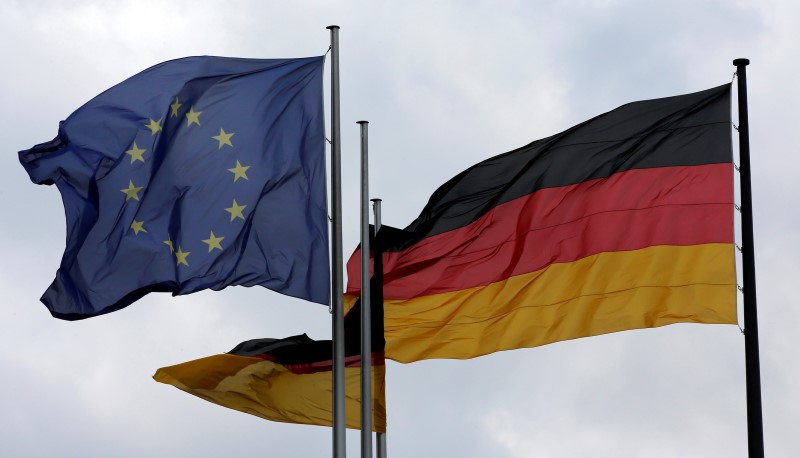BERLIN (Reuters) - Once Britain leaves the European Union, Germany could have to contribute an additional 4.5 billion euros (3.81 billion pounds) per year in both 2019 and 2020 to the EU budget, according to an internal Finance Ministry report published on Saturday.
Germany, Europe's largest economy, already makes the largest net contribution to the EU budget each year - more than 15 billion euros (12.68 billion pounds).
Der Spiegel news magazine reported that the looming "loss of the second-largest net contributor" - Britain - would mean Germany's share of the EU's gross domestic product would increase to 25 percent from 21 percent currently.
"Brexit" would thus have a corresponding impact on net contributors like Germany, which in 2015 sent 15.6 billion euros more to the EU than it received back. Britain was number two with net contributions of 12.7 billion. The biggest recipient from the EU was Poland, which in 2015 got 10.4 billion euros.
The Finance Ministry's paper, which Der Spiegel said was drafted upon request by Finance Minister Wolfgang Schaeuble, noted that the added 4.5 billion euro figure does not contain "any conceivable compensation adjustments" to the budget that could possibly reduce the shortfall caused by Britain's exit.
In June, Schaeuble's ministry drafted a reform plan for stricter budget rules for EU states and a downsized European Commission as a result of the Brexit vote.

In a referendum in Britain on June 23, 51.9 percent voted to leave the EU while 48.1 percent voted to stay.